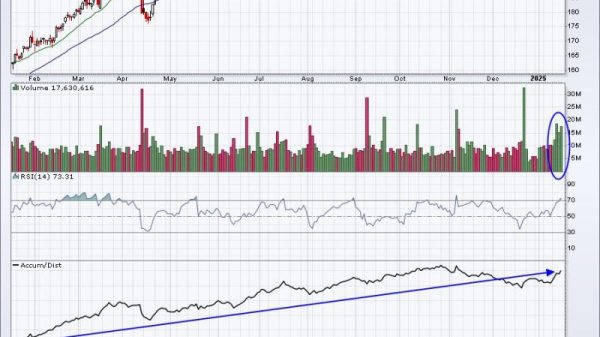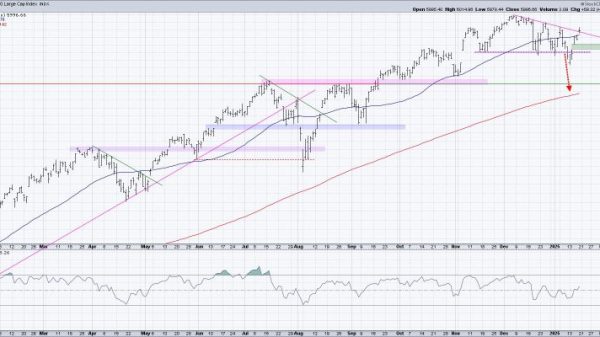Let’s begin with an electoral factoid: 16 out of every 1,000 registered voters in Pennsylvania have a last name that ends in -ski or -sky.
This is not because the state is awash with newly arrived immigrants from Poland and Eastern Europe but because it used to be. A century ago, immigration from Poland peaked, with many new arrivals joining immigrants from their home countries who were working in mines and steel mills in Pennsylvania. Many stayed and started new families. The culture of the state changed, blending Eastern European influences with Pennsylvania Dutch and other communities. It became what it is today.
According to former president Donald Trump, though, the culture of American states — and Pennsylvania in particular — is something nearly immutable and under threat.
“It takes centuries to build the unique character of each state,” he wrote on social media on Tuesday. “But reckless migration policy can change it quickly and permanently.”
His point was unsubtle, but he went on to make it explicit.
“If [Vice President] Kamala Harris wins this election, she will flood Pennsylvania cities and towns with illegal migrants from all over the world,” he wrote, “and Pennsylvania will not be Pennsylvania any longer.”
It doesn’t really take “centuries” to build the unique character of a state, obviously, since the United States has only existed for about 250 years, with many states joining the union much more recently than that. The character of each state, though, is a function of the sort of evolution and blending that Pennsylvania experienced, one that is and has been ongoing.
Trump’s argument is less complicated. It’s just an appeal to the nativism of people whose grandparents were immigrants but who were born here, people who reshaped Pennsylvania by introducing Polish food and words but who are now wary of immigrants offering up other ones. And, in at least one sense, Pennsylvania is unusually susceptible to that sort of argument.
There’s a broad pattern to how the populations of states have evolved. In the past century, many states have gone from having populations that were mostly born in the state to populations that were born elsewhere in the country or outside the United States. The period in which so many states were mostly occupied by people born in those states overlapped with a period during which immigration to the United States was restricted — a response to the sort of anti-foreigner sentiment that Trump now espouses, but focused on immigrants from Asia and Eastern Europe.
A century ago, Pennsylvania had a higher percentage of foreign-born residents than the average state or the United States overall. It now has a lower percentage. At the same time, the percentage of Pennsylvanians who were born in the state is much higher than in other states. In 2022, only five states had larger percentages of their populations who were born in those states than did Pennsylvania.
In other words, Pennsylvania is a state shaped by immigrants who settled in it — and then, to an unusual degree, stayed. These are the people Trump hopes to woo: Pennsylvanians who see changes in the state as a deviation from some idealized norm rather than seeing change itself as the norm.
The small towns in Pennsylvania to which Trump hopes to appeal are often ones where the tendency of young people to move away for college or job opportunities has led to slow economies and more insecurity. Immigrants, rather than being seen as a pathway out of those problems, are instead positioned as a threat to a way of life that’s fading anyway. But those small towns are revealing in their own way.
A few weeks ago, for example, Trump was in Johnstown, Pa., once a central part of the steel industry. Johnstown has a historical center that details how it built that industry; the story is centered on the immigrant populations that did so. One of the most popular stores in the city’s heyday was called Glosser’s, built by Jewish immigrants who settled in the area. One of the current descendants of the Glosser family is Trump’s fervently anti-immigration adviser Stephen Miller.
Earlier this week, Trump held another rally in the city of Indiana. There’s an Indiana University there, which is admittedly confusing, but was also where his rally was held. It’s where Trump decried the arrival of immigrants from Haiti who were boosting the economy of towns like Charleroi.
The rally was held in Indiana University’s Kovalchick Convention and Athletic Complex. It’s named after the owners of the Nicholas and Anna P. Kovalchick Salvage Company, who donated land for the complex. The company was founded in 1928 by Nick Kovalchick, whose parents were immigrants from Eastern Europe.
It was in the Kovalchick Complex that a crowd of Pennsylvanians roared as Trump disparaged immigrants and warned that they were going to alter the state irreversibly. It was within its walls that the crowd chanted, “Send them back!” — just as they might have at a rally 100 years ago in which a political demagogue warned about the ways that immigrants from Eastern Europe were poised to destroy the delicate culture Pennsylvanians then enjoyed.
Lenny Bronner contributed to this report.


































